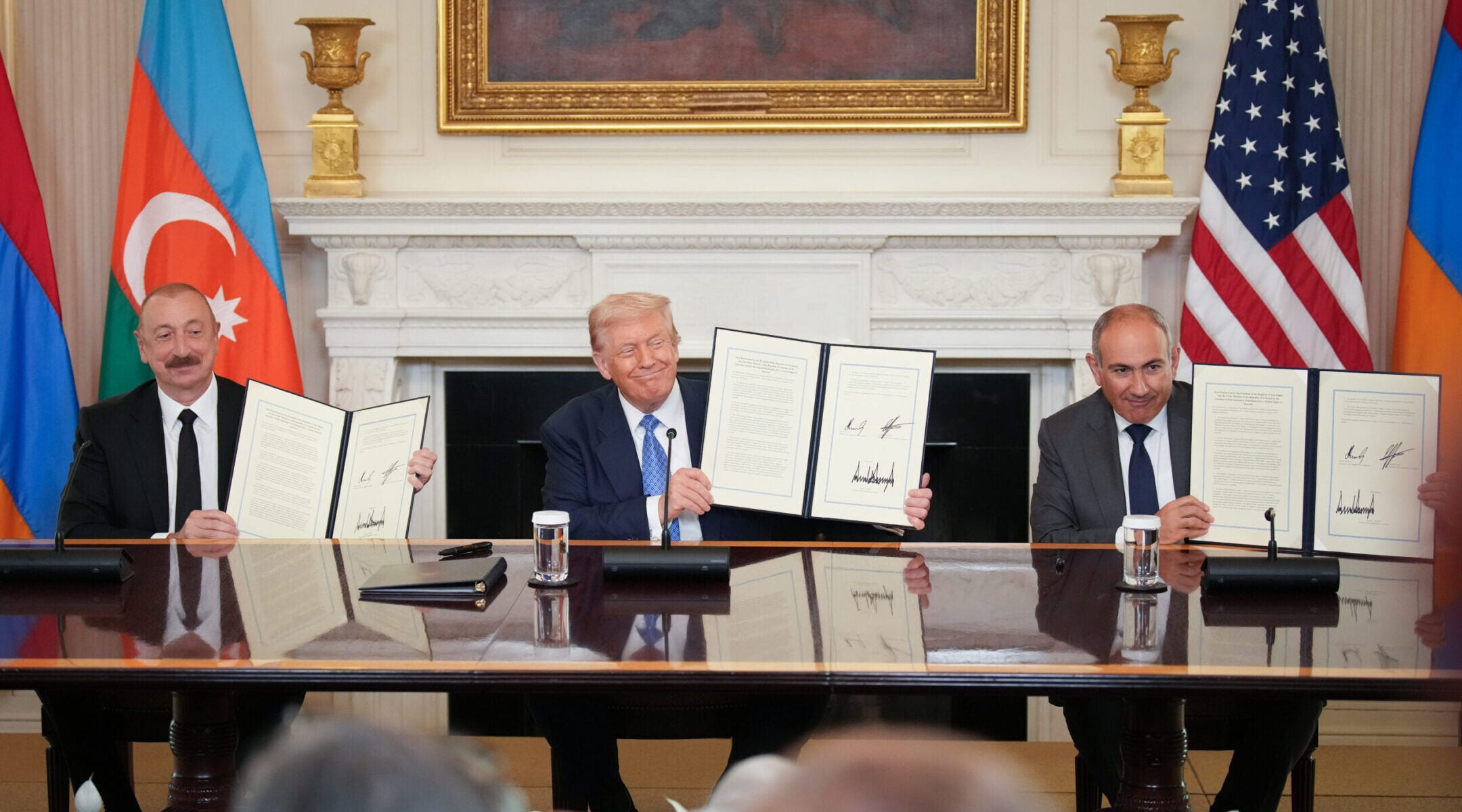Armenia-Azerbaijan Peace Plan Offers New Hope for Caucasus Jews

Understanding the Impact of Peace on Jewish Communities in Armenia and Azerbaijan
The recent agreement between Armenia and Azerbaijan has sparked discussions about the implications for Jewish communities in both countries. The long-standing conflict over the Nagorno-Karabakh region, which has led to numerous wars and accusations of human rights violations, is now on the brink of resolution. This shift could significantly affect the lives of Jews in both nations, who have historically navigated complex relationships with their neighbors.
A New Era of Peace and Cooperation
On August 8, Armenian Prime Minister Nikol Pashinyan and Azerbaijani President Ilham Aliyev met with then-U.S. President Donald Trump at the White House to sign agreements aimed at ending decades of hostilities. This moment marks a pivotal point in the region's history, as it signals a commitment to peace and coexistence.
Shneor Segal, chief rabbi of the Ashkenazi community in Azerbaijan and head of the Chabad movement there, expressed optimism about the agreement. He emphasized that as Jews, they have always prayed for peace, and any move toward harmony between neighbors is positive.
Alexandra Livergant, a Russian Jew living in Yerevan since 2022, noted that while Armenians treat her kindly, attitudes toward individual Jews and Israel differ. She pointed out that the peace agreement could ease tensions, particularly regarding Israel's arms sales to Azerbaijan.
The Jewish Communities in Azerbaijan
Azerbaijan, a predominantly Muslim country, has a rich history of Jewish presence dating back to the destruction of the First Temple in 586 BCE. The country boasts the world’s first oil well and continues to rely heavily on energy exports. Despite being primarily Muslim, Azerbaijan allows the practice of other faiths, enabling its small Jewish community to thrive.
Rabbi Zamir Isayev, chairman of the Sephardic Community of Baku, highlighted that Azerbaijan is unique among Muslim countries, where Israeli tourists can feel at home. However, the exact number of Jews in Azerbaijan remains uncertain, with estimates ranging from 7,200 to 30,000. This diversity includes Mountain Jews, Ashkenazi Jews, and others.
Challenges in Armenia
In contrast, Armenia, known for its ancient Christian heritage, faces challenges regarding Jewish safety. The country's only synagogue, the Mordechay Navi Jewish Religious Center in Yerevan, has been targeted by vandals in recent years. These attacks, some attributed to a shadowy "liberation army," have raised concerns about antisemitism in the region.
Armenia's relationship with Israel is complicated by historical grievances. The country has accused Israel of supporting Azerbaijan during the 2020 war, which resulted in significant losses for Armenians. Additionally, Armenia has not officially recognized the 1915-23 genocide of Armenians by the Ottoman Turks, a stance that has strained relations with Israel.
The Role of the Trump Route
Central to the peace agreement is the Trump Route for International Peace and Prosperity (TRIPP), a 27-mile corridor connecting Azerbaijan with its exclave, Nagorno-Karabakh. This initiative aims to foster economic development and reduce Russia's influence in the region. It also seeks to prevent monopolization by any single power, ensuring a more balanced approach to regional stability.
Nathaniel Trubkin, coordinator of the Yerevan Jewish Home community, hopes the peace accord will improve Armenia's ties with Israel. He believes that the current atmosphere could change perceptions, allowing for more constructive dialogue between the two nations.
Future Prospects and Cultural Exchange
Despite the potential for improved relations, contact between Armenian and Azerbaijani Jews remains limited due to travel restrictions. Rabbis in both countries have had little opportunity to engage with one another, highlighting the need for increased communication.
Azerbaijan currently has eight active synagogues, along with educational institutions like the Or Avner Educational Complex. The influx of Israelis into the country has further strengthened these communities, with increased cultural exchanges and events.
Jamilya Talibzadeh, director of the Azerbaijan Tourism Office in Israel, noted a surge in Israeli visitors to Azerbaijan. With 14 weekly flights between Tel Aviv and Baku, and Arkia planning additional routes, the number of Israeli tourists is expected to grow.
Looking Ahead
As the region moves toward greater stability, the impact on Jewish communities in both Armenia and Azerbaijan will be significant. The peace agreement offers hope for improved relations, economic opportunities, and cultural exchange. While challenges remain, the potential for a brighter future for all inhabitants of the South Caucasus is evident.
Post a Comment for "Armenia-Azerbaijan Peace Plan Offers New Hope for Caucasus Jews"
Post a Comment